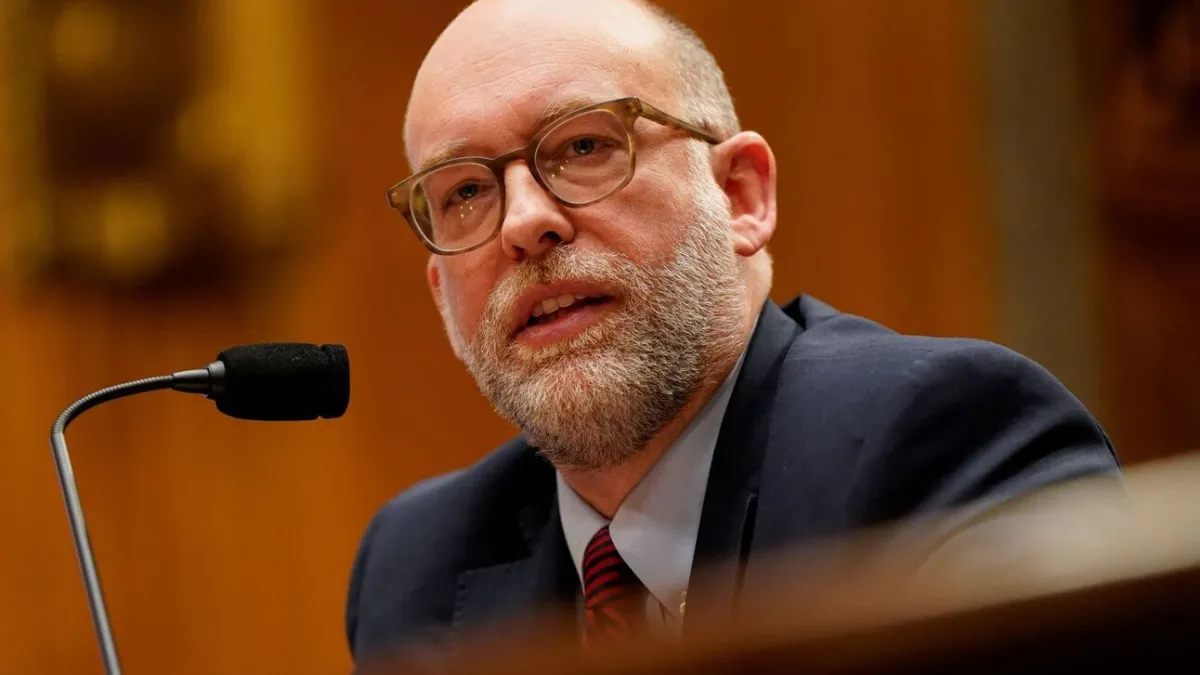
The Senate on Wednesday ramped up its consideration of President-elect Donald Trump’s Cabinet picks, holding six confirmation hearings, including for Sen. Marco Rubio, nominated to be secretary of state, and Pam Bondi, Trump’s choice for attorney general. While those two may generate the most headlines today, the Senate also considered the nomination of Russ Vought to head the Office of Management and Budget (OMB), a position that may come with a lower public profile but is very powerful, with critical responsibility for spearheading the president’s budget, coordinating policy and regulations across the federal government.
Vought would play a key role in enacting the Republican agenda to slash spending and shrink the federal government — and he signaled that the Trump administration might pick a constitutional fight over Congress’s power of the purse.
An ‘aggressive cost cutter’: Vought, 48, had years of experience as a congressional budget staffer and policy wonk, and he was OMB deputy director and director during Trump’s first term. In the White House, he was behind a controversial Trump plan to replace thousands of civil servants with political loyalists, among other things.
After leaving government in 2021, Vought started a conservative think tank called the Center for Renewing America, which says its mission, in part, is to “renew a consensus of America as a nation under God with unique interests worthy of defending… .”
Vought was also a key author of the controversial Project 2025, and Trump called him “an aggressive cost cutter and deregulator” when he announced his nomination in November. “Russ knows exactly how to dismantle the Deep State and end Weaponized Government, and he will help us return Self Governance to the People,” Trump said at the time.
Vought, along with Trump and others in the incoming administration, has indicated that he stands ready to challenge the congressional power of the purse and the requirement that the president spend funds appropriated by Congress. He has claimed that congressional appropriations are a “ceiling not a floor” for spending. And, along with Trump, he has claimed that the Impoundment Control Act of 1974, which limits a president’s ability to refuse to spend appropriated funds, is unconstitutional, even though courts have ruled otherwise.
Republicans back Trump’s pick: “Mr. Vought has been a consistent advocate for fiscal sanity and has continually suggested strategies to decrease excess spending,” said Republican Sen. Rand Paul, chair of the Senate Committee on Homeland Security & Governmental Affairs. “We need someone with the strength of character like Mr. Vought to put the foot down, to put the hammer down and say, ‘Enough is enough.’”
Paul did express some concerns, though, about the president usurping Congress’s power.
Democrats raise alarms: Sen. Gary Peters of Michigan, the top Democrat on the committee, said Vought’s record at OMB was problematic and raised questions about whether he would follow the law. “Unfortunately, your record and actions in these roles raise serious concerns about how you’re going to lead this critical agency that touches literally every single part of the federal government,” Peters said. “Above all, I am concerned by actions you took to demonstrate a total disregard for following the laws that Congress has passed, particularly regarding how to spend taxpayer dollars.”
Peters asked if Vought would abide by the Impoundment Control Act if confirmed to lead OMB again.
“I will always commit to upholding the law,” Vought responded. But he also insisted that he had followed the law during the first Trump administration, disagreeing with findings by the Government Accountability Office that the first Trump administration violated the law by freezing funds for Ukraine.
Asked about the Impoundment Control Act specifically, Vought acknowledged that it is the law of the land but also signaled that the incoming Trump administration will decide whether to follow it or challenge it. “As you know, the president has run on that issue. He believes it’s unconstitutional,” Vought said, adding, “We’ll be developing our approach to this issue and strategy once his administration is in office.”
Democratic Sen. Richard Blumenthal of Connecticut said that Vought’s stance should be disqualifying. “I’m astonished and aghast that someone in this responsible a position would, in effect, say that the president is above the law and that the United States Supreme Court is entitled to their opinion, but mine should supersede it,” he said.
Blumenthal also asked Vought to commit to disburse the $3.8 billion in remaining funds congressionally approved for Ukraine. Vought would not explicitly do so. “I’m not going to get ahead of the policy response of the incoming administration,” he said.
Sen. Elissa Slotkin of Michigan said that she was disturbed by Vought’s evasive, bureaucratic answers on constitutional issues. “I don’t quibble at all with the fact that the president is going to put in people that I don’t agree with on a policy perspective,” she said. “My concern with you and with potential secretary [of defense] Hegseth yesterday is that, when asked clear constitutional questions about the allocation of money, you can’t answer a straight constitutional question.”
Vought responded by pledging that he “absolutely will abide by the Constitution at all times.”
The bottom line: Vought appears likely to sail through to confirmation by the Republican-led Senate, and the incoming Trump administration appears headed for a constitutional fight over presidential authority over spending.